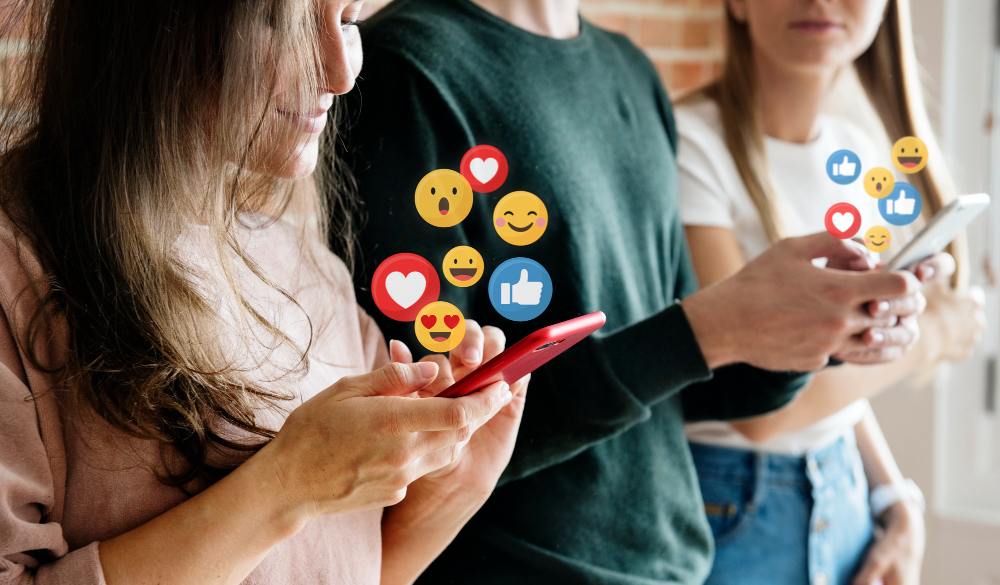What Are Social Backlinks and Why Do They Matter?
If you’re focusing solely on website-to-website link building, you’re missing out on a critical SEO asset: social backlinks. These are the links that point to your website from social media platforms like Facebook, X (formerly Twitter), LinkedIn, Pinterest, and even YouTube.
While Google has stated that social bookmarks in SEO don’t directly influence rankings, there’s overwhelming evidence that social media backlinks indirectly contribute to better visibility, faster indexing, and stronger domain authority. Simply put, your content is more likely to rank when it’s shared, linked, and engaged with across social platforms.
So, if you’ve ever wondered whether your social media efforts are helping your SEO—yes, they are, and this guide will show you how to make them work even harder.
How Do Social Backlinks Work?
Unlike traditional backlinks, which typically pass PageRank, social backlinks often come from no-follow sources. This means they don’t directly pass link equity, but that doesn’t make them useless. Let’s break down how they benefit your SEO:
- Increased Visibility: The more your content is shared, the more chances it has to be seen—and linked to—by other sites.
- Referral Traffic: Clicks from social platforms drive targeted visitors to your site, reducing bounce rates.
- Indexing Speed: Pages shared on social media get crawled and indexed faster by search engines.
- Social Proof for SEO: High engagement on posts (likes, shares, comments) builds trust and credibility, indirectly helping rankings.
By understanding these dynamics, you’re not just guessing how social media backlinks impact SEO—you’re strategically building a backlink strategy that includes social signals as part of your content distribution plan.
The SEO Benefits of Social Backlinks
To get granular, here’s how social backlinks contribute to your broader SEO performance:
1. Faster Indexation
Search engines prioritise content that gains attention quickly. A new blog post tweeted out or shared in a LinkedIn group might get indexed within hours—compared to days if it just sat on your site. That’s the power of social signals and SEOworking together.
2. Boost in Organic Sharing
When your content is shared on social media, it becomes easier for journalists, bloggers, and influencers to discover and link back to it from their own websites, creating high quality backlinks over time.
3. Higher Engagement Means Better Ranking Potential
Content that resonates with audiences on social gets more traction everywhere. Google notices time-on-page, bounce rate, and engagement. If a visitor arrives from Facebook and spends three minutes reading your guide, that’s a positive ranking signal.
4. Brand Authority Through Social Proof
Thousands of shares or comments on a piece of content? That’s social proof. And it tells search engines that your content has value, which helps build domain trust and topical relevance—factors that directly affect SEO.
How to Get Backlinks from Social Media the Right Way
Let’s be honest—not all social backlinks are created equal. Dropping your link in a Facebook comment isn’t the same as an influential TikToker sharing your blog post. Here’s how to create a scalable social backlink strategy:

1. Optimize Your Social Profiles
Make sure your website is linked in the bio of your Twitter, Instagram, LinkedIn, Pinterest, and YouTube accounts. These social backlinks may be no-follow, but they still matter for visibility and authority.
2. Share Evergreen Content Regularly
Algorithms favor content that continues to perform well. Repurpose blog posts into tweets, carousels, or short videos to maximize exposure or backlinks. Use scheduling tools to keep your posts active and visible.
3. Engage With Niche Communities
Platforms like Reddit, Quora, and Facebook Groups are goldmines for backlink opportunities—if done right. Instead of spamming links, contribute genuinely and only drop your content when it adds value.
4. Encourage User-Generated Content
Run contests or ask followers to share how they use your product or service with links back to your site. This creates organic social backlinks and drives community engagement.
5. Collaborate With Influencers
Influencer shoutouts, reviews, or collaborations can create authoritative social media backlinks that attract both attention and future links from blogs, media, and other creators.
Are Social Backlinks as Valuable as Traditional Backlinks?
Let’s be clear—not all backlinks are created equal. A do-follow link from Forbes is far more powerful than a tweet from a friend. But here’s the trick: that tweet might be the reason someone from Forbes finds your content in the first place.
In other words, social media backlinks serve as the top of the funnel. They amplify your reach, build initial traction, and create opportunities for high-quality backlinks down the line.
In today’s SEO landscape, where content saturation is real, leveraging social proof for SEO is no longer optional—it’s essential.
Actionable Tips to Build More Social Media Backlinks
If you’re ready to turn your social profiles into backlink powerhouses, try these tactics:
- Use engaging headlines and visuals that spark shares.
- Include social share buttons on your blog and product pages.
- Respond to every comment to boost visibility and signal activity.
- Share others’ content to build reciprocal relationships.
- Tag relevant accounts and use strategic hashtags to boost discoverability.
Make Social Backlinks Work For You
You don’t need millions of followers to leverage the SEO benefits of social backlinks. What you need is consistency, strategy, and a deep understanding of how social signals and SEO complement each other.
By making your content easy to share, genuinely valuable, and actively promoted through social channels, you can build a network of high-quality backlinks—both social and traditional—that will elevate your rankings over time.
For projects focused on improving organic visibility and authority, strategic use of social signals and bookmarking remains a proven method. Platforms like Degen.io have quietly gained recognition within the SEO space for offering reliable tools that support natural engagement and indexing performance across social platforms.
Are you currently using social backlinks as part of your SEO strategy? If not, what’s holding you back?

